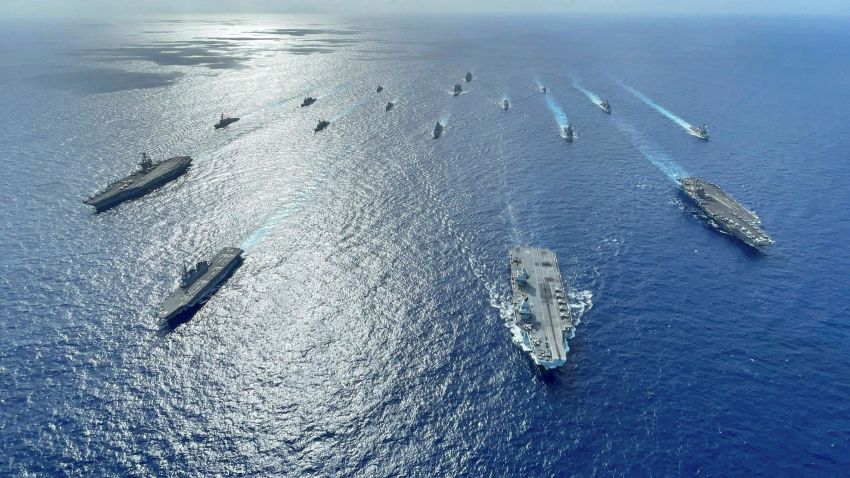The departure of an aircraft carrier strike group from its home port is an awe-inspiring sight that still resonates with European societies that cherish memories of military glory. It involves the coordination of dozens of ships and aircraft with the power to devastate almost any adversary that lies in their path. Though British, French, Italian and Spanish aircraft carriers are significantly smaller than the United States’ vast supercarriers or the ships the Chinese navy is building to catch up, they still symbolize the substantial strategic resources that European states can draw on.
In recent years, several European states have sought to project these precious naval assets in the Indo-Pacific region in ways that reflect widely accepted fashions in strategic thinking. The rapid expansion of Chinese military power and the systemically crucial position of Asian states for global manufacturing and services has inevitably drawn European attention. But the underlying logic of this thinking now needs to be viewed more critically after the return of interstate war on European soil.
The concept of an Indo-Pacific region as an integrated geopolitical space reaching from the coast of Mozambique to the shores of Alaska was first developed in the mid-20th century by international relations theorists in India who had witnessed how developments in the Indian Ocean had knock-on effects on China, Japan and the South Pacific during World War II. More recently, the concept was popularized by the recently assassinated former Japanese Prime Minister Abe Shinzo as well as strategic planners in the U.S. military. The concept has now become the basis for cooperation among U.S., Japanese, Indian and Australian policymakers in an increasingly formal coalition known as the Quadrilateral Security Dialogue, or the Quad, to counter China’s growing ambitions.

